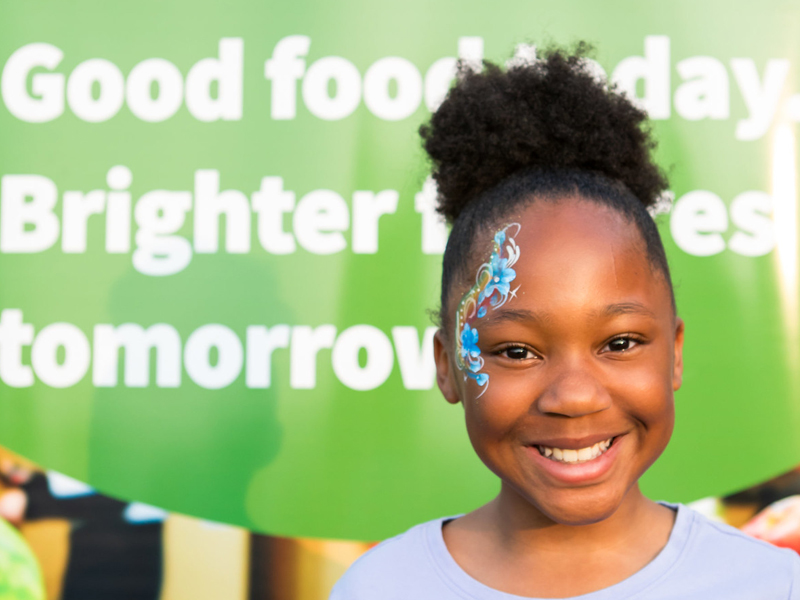
In one of the wealthiest countries in the world, there are populations disproportionately impacted by poverty, geography, and unequitable health, behavioral, and academic outcomes. In the Greater Washington, D.C., region, 37 percent of the population is food insecure, including one in ten children. Persistent childhood food insecurity can lead to chronic health issues such as asthma, anemia, and poor oral health. Food insecurity in childhood is also linked with diminished academic performance, grade repetition, and anxiety, with long-lasting effects.
BGR partner Capital Area Food Bank (CAFB) operates the Afterschool and Summer Meals program in partnership with over 50 community organizations including churches, recreation centers, and boys and girls clubs throughout the Greater Washington region. These sites already represent safe places for children during after-school hours, and children benefit from access to the multitude of resources these partners provide, such as mentoring and tutoring. This program is providing an estimated 4,328 girls and boys with consistent access to quality, nutritious, “kid-approved” meals and snacks provided by CAFB to augment the social and educational programs provided by the community organizations.

In one of the wealthiest countries in the world, there are populations disproportionately impacted by poverty, geography, and unequitable health, behavioral, and academic outcomes. In the Greater Washington, D.C., region, 37 percent of the population is food insecure, including one in ten children. Persistent childhood food insecurity can lead to chronic health issues such as asthma, anemia, and poor oral health. Food insecurity in childhood is also linked with diminished academic performance, grade repetition, and anxiety, with long-lasting effects.
BGR partner Capital Area Food Bank (CAFB) operates the Afterschool and Summer Meals program in partnership with over 50 community organizations including churches, recreation centers, and boys and girls clubs throughout the Greater Washington region. These sites already represent safe places for children during after-school hours, and children benefit from access to the multitude of resources these partners provide, such as mentoring and tutoring. This program is providing an estimated 4,328 girls and boys with consistent access to quality, nutritious, “kid-approved” meals and snacks provided by CAFB to augment the social and educational programs provided by the community organizations.




